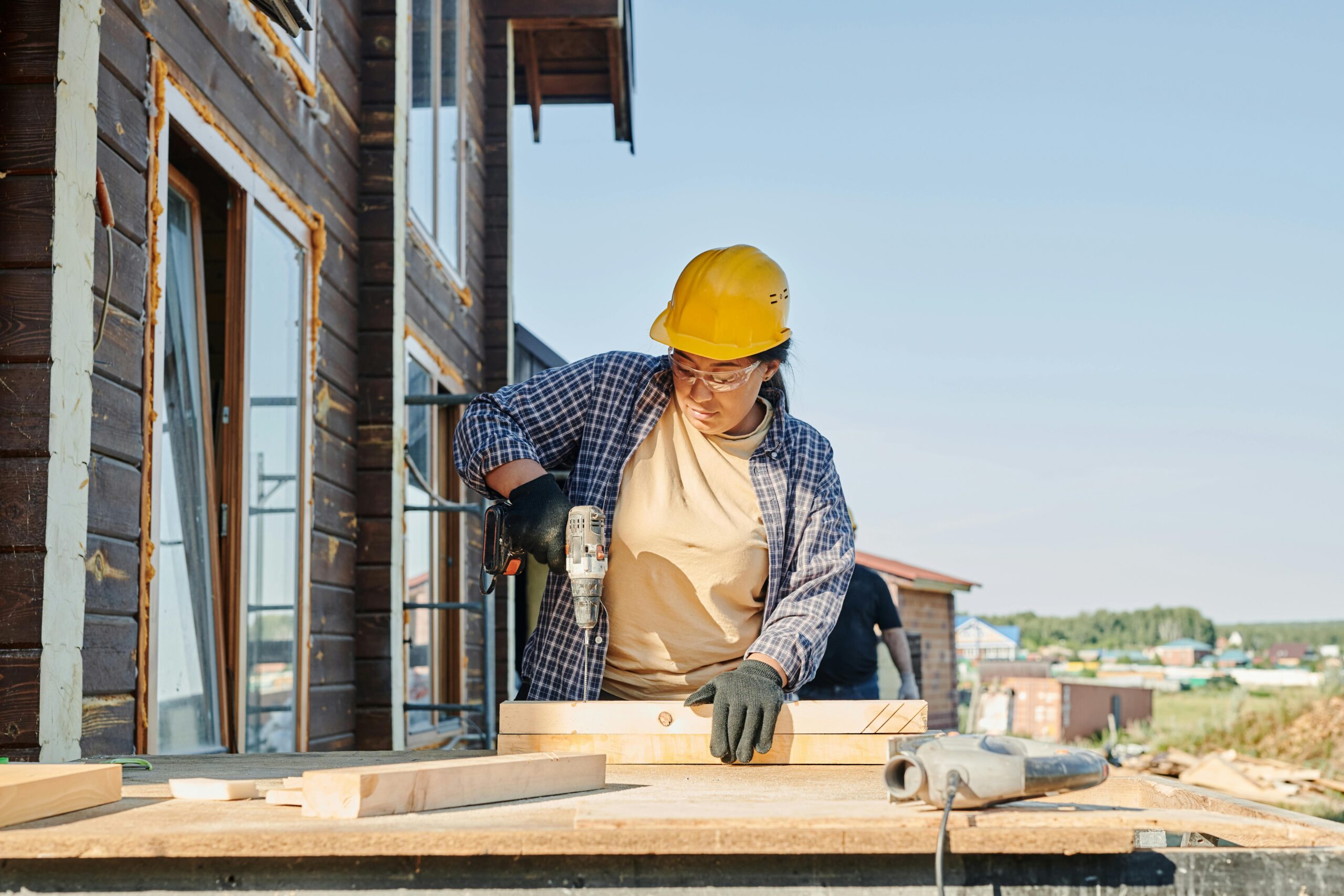How to Protect Your Health & Finances When You Work in Extreme Weather

The summer of 2023 was the hottest summer globally on record, according to NASA. These rising temps and other extreme weather conditions may affect your short-term and long-term finances, especially if you work outdoors.
In a survey of SaverLife members, 17% of members and 25% of members with children reported a loss of income or wages due to severe weather or natural disasters. Additionally, 30% of SaverLife members with children reported they missed a household bill payment due to weather disasters.
While extreme weather is unpredictable, there are steps you can take to prepare and protect your health and finances.
Know the Signs
One thing you may face if you’re working outside in extreme heat is heat exhaustion or heat stroke. It’s important to pay attention to the signs and know how to deal with them.
Heat exhaustion can come on slowly or quickly, and if not addressed, it can lead to heat stroke. If you’re out working in extreme heat, watch out for dizziness, muscle cramping, heavy sweating, feeling cool or clammy, pale skin, feeling weak or tired, a fast, weak pulse, nausea or vomiting, a headache, or fainting. These can all be signs of heat exhaustion.
If you begin to feel any of these symptoms, seek shade or a cooler area, loosen your clothing, and sip cool water.
If symptoms persist, or if you develop an extreme headache, confusion, worsening nausea or vomiting, or loss of consciousness, seek medical attention or call 911. Heat exhaustion can shift into heat stroke which is a serious medical condition and needs to be treated as quickly as possible.
It’s also important to note that you may be more at risk if you’re not used to working in extreme weather. According to the US Department of Labor, 50% to 70% of outdoor fatalities occur in the first few days of working in warm or hot environments because the body needs to gradually build a tolerance to the heat over time. The process of building tolerance is called heat acclimatization. Lack of acclimatization represents a major risk factor for fatal outcomes.
Advocate for Your Rights
If you work a job where you’re expected to work in extreme heat, it’s important to advocate for yourself and your rights.
Work to inform yourself about heat-related workplace policies provided by your employer and in your state. Currently, five states (California, Colorado, Minnesota, Oregon, and Washington) have state standards relating to heat exposure at work.
How to advocate for yourself and others:
- If you live in one of these states, be sure you understand the standards that apply in your state, and if you don’t feel they are being observed, talk to your employer.
- If you live outside of these five states, you can still advocate for water breaks and shade with your employer by requesting reasonable accommodations. Not sure what to ask for? Check out this OSHA Quick Card: Protecting Workers from Heat Stress
- If speaking directly with your employer isn’t an option or doesn’t work, speaking to local representatives in the government to work on legislative change could be a good way to get your voice heard.
Protect Yourself
If you have a job outdoors and end up working in extreme heat, there are steps you can take to protect yourself.
- If your job doesn’t require a uniform, wear loose light-weight clothing that can breathe. Avoid wearing dark colors as they will attract the heat and make you warmer.
- Take plenty of water with you to work so you can stay hydrated.
- Wear sunglasses and a hat or other head covering to help minimize your exposure to the sun.
- Utilize water and food breaks you’re given to stay hydrated and seek shade and cooler temperatures if possible.
If you work in an area that’s more prone to air pollution, you’ll want to protect yourself from that as well.
According to the American Lung Association, the negative effects of pollution aren’t equally distributed across society. Pollution has a greater health impact on people with lower incomes, especially those who work outdoors.
While it’s best to avoid prolonged exposure to air pollution while doing strenuous activities, if you work outside, this may not be an option for you. If it’s possible for you given the scope of your job, cover your mouth and nose to minimize your exposure to pollution while you work.
Have an Emergency Fund
If you experience adverse effects of working in extreme weather, you may find yourself with medical bills. Additionally, extreme weather like hurricanes and wildfires could prevent you from being able to work, impacting your income.
An emergency fund can provide relief in both situations. Here’s how an emergency fund can help:
- If you have medical bills from work-related heat exhaustion or heat stroke, and you find out that your workers’ compensation doesn’t cover the bills.
- If you find that your workers’ compensation doesn’t cover your recovery time from work-related heat exhaustion or heat stroke-related medical bills.
- A hurricane, flood, or other natural disaster prevents you from being able to work temporarily.
Try to set aside some of your income each month in a separate savings account to be used in the event of an emergency, like extreme weather affecting your employment. Having this money can help you protect both your health and your finances.
Kimbree Redburn is an Accredited Financial Counselor® with a background in economic development. She works with her clients to help them understand their financial options and make money decisions with confidence. She believes that financial education gives people a chance to build a better life.
